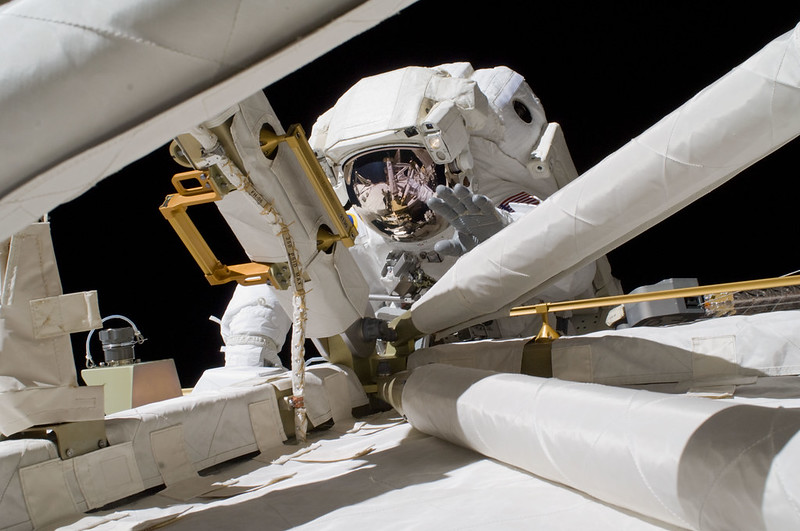3.1.5 Defining and Measuring Scientific Literacy

Maintenance for the International Space Station’s “science central.” Photo Credit: NASA’s Marshall Space Flight Center, 2009.
It can be argued that scientific literacy is more about the ideas behind scientific thinking than about hard facts. Facts can be remembered and regurgitated, whereas real scientific literacy comes from being able to think critically and discern answers among the noise (PLOS 2015).
Read: How do we define and measure scientific literacy? // PLOS
- Does water boil at a higher or lower temperature than 100 degrees Celsius at high elevations?
- Is question number 1, above, a useful indicator of scientific literacy, according to the article?
- How do you think people can be taught to think critically and evaluate the validity of claims?
- What is an issue facing your community that requires scientific literacy?
Photo: “#TBT: STS-119 Launches to Space Station–March 15, 2009.” Photo Credit: NASA’s Marshall Space Flight Center, 2009. Public domain.


